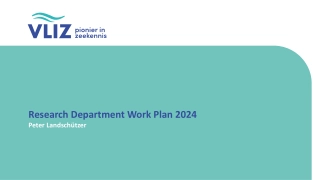
Legal Issues and Compliance in Statutory Schemes - Important Considerations
Explore the legal complexities surrounding complying with statutory schemes, consultation duties, rational decision-making, and more in the legal landscape. Learn about substantive duties, rationality requirements, and consultation obligations to ensure compliance.
Download Presentation

Please find below an Image/Link to download the presentation.
The content on the website is provided AS IS for your information and personal use only. It may not be sold, licensed, or shared on other websites without obtaining consent from the author. If you encounter any issues during the download, it is possible that the publisher has removed the file from their server.
You are allowed to download the files provided on this website for personal or commercial use, subject to the condition that they are used lawfully. All files are the property of their respective owners.
The content on the website is provided AS IS for your information and personal use only. It may not be sold, licensed, or shared on other websites without obtaining consent from the author.
E N D
Presentation Transcript
Cuts and closures Peter Oldham QC Peter Oldham QC September 2018
The legal issues that typically arise (1) Complying with the statutory scheme and/or guidance* Needs assessment* Vires for new scheme of delivery (commercial enterprise etc) Gathering enough information to be rational and taking a rational decision* Consultation statutory duty/common law duty* Substantive legitimate expectation Have regard duties*
The legal issues that typically arise (2) Best value under LGA 1999* Human rights/proportionality Error of fact Procurement Assets of community value Budgets*
Complying with the statutory scheme and/or guidance May impose substantive and procedural duties. For instance:- Libraries WX v Northants (2018); Page v Darlington (2018) PLMA 1964 s 7: substantive duty to provide a comprehensive and efficient library service Significant changes may require an assessment of whether proposed service is C&E Children s centres A v Oxfordshire (2016); WX v Northants Childcare Act 2006 s 5A: substantive duty to make arrangements for sufficient provision of children's centres to meet local need. Childcare Act 2006 also imposes procedural duties of consultation before changes in CC provision
Rationality (1) sufficient information (2) the decision (1) Sufficient information the Tameside duty:- did the Secretary of State ask himself the right question and take reasonable steps to acquaint himself with the relevant information to enable him to answer it correctly Raised in Law Centres Federation v LC (2018)- reorganisation of housing possession scheme areas Link to PSED allows decision maker to understand equalities impacts (2) The decision where rationality has two meanings: (a) taking information into account (WX v Northants) (b) reaching a rational conclusion in the light of it Court adopting proportionality/anxious scrutiny approach instead of rationality?
Consultation Statutory Moseley v Haringey (2014) on council tax; A v Oxfordshire and WX v Northants on children s centres Common law where unfair not to: (a) promise/representation (b) history (c) pressing need Not just when the Court thinks it feels fair: KE v Bristol (2018) dangerous Recent issues on consultation Discarded alternatives? What is misleading ? Frequently alleged following Moseley; rejected in WX v Northants Does PSED impose duty of consultation? KE v Bristol, purporting to follow Hurley (2010), dangerous. Duty of transparency? Law Society v LC 2018 (cut to legal aid for criminal defence) The first point, which should not need to be made but evidently does, is that consultees are entitled to expect that a government ministry undertaking a consultation exercise will conduct it in a way which is open and transparent. In particular, they are entitled to expect that if, on the crucial question raised in the consultation paper, officials have carried out an analysis which forms the basis of the proposal, then that fact will be mentioned in the consultation documents and not left to be inferred.
Have regard duties (1) Check they are only have regard . Have regard = follow unless good reason not to Can be factors referred to in the statue, or guidance PSED of course, but ones to watch out for now being used in JRs: Children Act 2004, s 11: arrangements for ensuring that functions are discharged having regard to the need to safeguard and promote the welfare of children Nzolasemo v Westminster (2015) decides it is not a structural or target duty, but enforceable by an individual in a cuts situation. But can be subsumed in other duties: e.g. SB v NHS England (2018); Juttla v Herts CC (2018)
Have regard duties (2) but more controversially, Children and Families Act 2014, s 27:- (1) keep under review (a)the educational provision, training provision and social care provision made in its area for children and young people who have special educational needs or a disability, and (2)The authority must consider the extent to which the provision referred to in subsection (1)(a) and (b) is sufficient to meet the educational needs, training needs and social care needs of the children and young people concerned (3)In exercising its functions under this section, the authority must consult (a) (k) In DAT v West Berks CC (2015), judge decides 30 despite my misgivings about the practical consequences of a such a view, I am driven to the conclusion that the [duties under s 27] must bite, where, as here, a local authority makes a decision which will necessarily affect the scope of the provision referred to in section 27. Followed in KE v Bristol. Suggest this is wrong: it is what it says it is: a duty to keep under review.
Best value duties LGA 1999:- (1)A best value authority must make arrangements to secure continuous improvement in the way in which its functions are exercised, having regard to a combination of economy, efficiency and effectiveness. (2)For the purpose of deciding how to fulfil the duty arising under subsection (1) an authority must consult [representatives of different groups] More about re-arrangements than cuts, and even then at high level (Nash v Barnet (2013) and Peters v Haringey (2018)) but cuts can involve re- arrangements, and vice versa Watch out for the 2015 guidance, which emphasises that environmental and social concerns should be considered where appropriate. If a re-procurement is involved, note Public Services (Social Value) Act 2012.
Budgets: the typical claim Claim against Full Council setting the budget which includes a budget line cutting amount for e.g. libraries. C says Full Council should have considered consultation responses/PSED/needs assessment etc. in doing so, but it did not. Council says it doesn t have to at budget setting stage: they can be considered later as there remains flexibility in how the savings are to be delivered.
Budgets: the main cases to date Domb v Hammersmith and Fulham (2009) Fawcett v Chancellor of the Exchequer (2010) JG v Lancashire CC (2011) D v Manchester CC (2012) Hunt v North Somerset CC (2013) A v Oxfordshire CC (2016) KE v Bristol (2018)
Budgets: and ones coming up Haringey Oct 2018 Surrey Oct 2018
Budgets: The orthodox position JG v Lancashire:- 50. What, in fact, has happened in this case is that the decision-maker has taken a preliminary decision in relation to its budget, fully aware that the implementation of proposed policies would be likely to have an impact on the affected users, in particular, disabled persons, but not committing itself to the implementation of specific policies within the budget framework until it had carried out a full and detailed assessment of the likely impact. In my view, there is nothing wrong in principle with such an approach and nothing inconsistent with the duties under the DDA. The economic reality was that to meet imperative needs of reducing expenditure it would be extraordinarily difficult to avoid an adverse effect on adult social care. But there remained flexibility as to how any such effect on disabled persons could be minimised and mitigated, and I am satisfied that the Council kept an open mind as to the precise policies that would be implemented.
Budgets: KE v Bristol Departs from the orthodoxy: holding that there should have been consultation, PSED consideration etc. prior to full Council setting SEN budget, even though the unchallenged evidence was that the Council would consult, consider PSED etc. in the development of specific policies within the budget envelope. Unlikely to be followed. Either wrong in law or can be distinguished on the facts.
Budgets: Non-Merits arguments 1. Delay by the time claim is heard, it may be well into the new financial year. Relevant that CT must be set by 11th March: LGFA 1992 2. Excessive relief sought, attacking entire budget but even quashing one budget line may result in need for new budget. Declaratory relief only? S 66(3) curiously provides: If on an application for judicial review the court decides to grant relief in respect of any of the matters mentioned in subsection (2)(b) or (c) to (e) above, it shall quash the determination, calculation, setting or precept (as the case may be). See Hunt v North Somerset, D v Manchester, WX v Northants 3. Prematurity e.g. if Full Council decision on budget head doesn t amount to decision to reduce services. 4. Prime territory for operation of SCA 1981, s 31(2A) and (3C) no permission/relief if it is highly likely that the outcome for the applicant would not have been substantially different if the conduct complained of had not occurred - remember to plead this in the AOS, then the Court has to consider it on the permission decision.






















